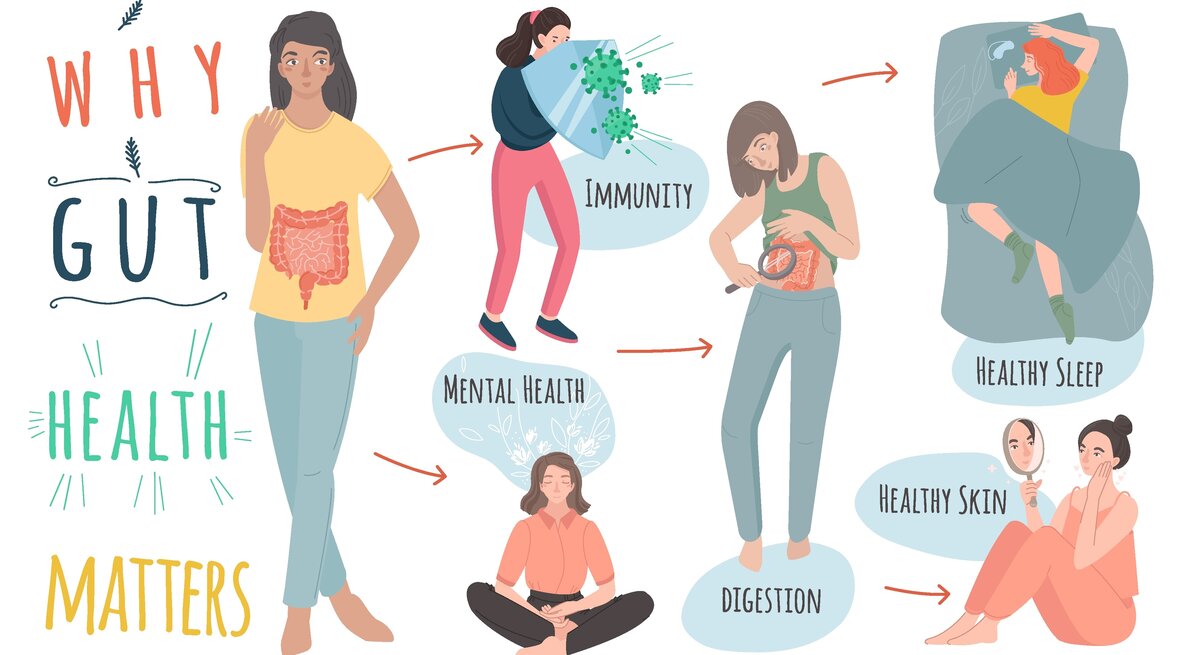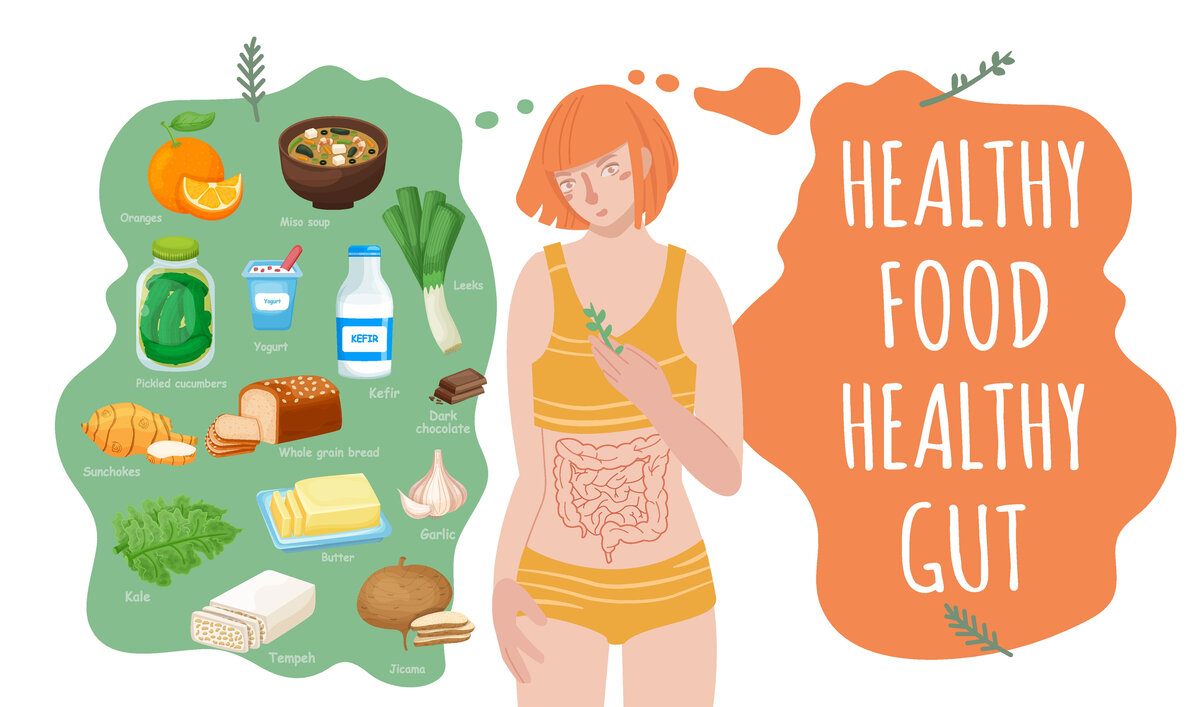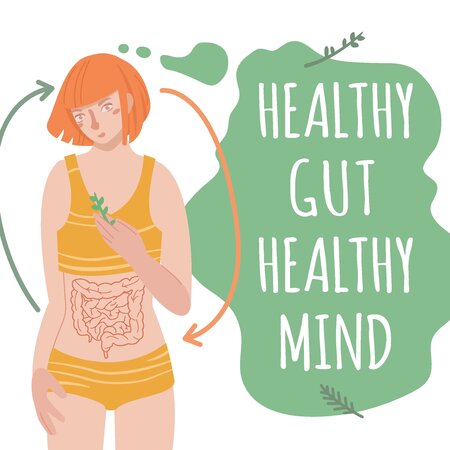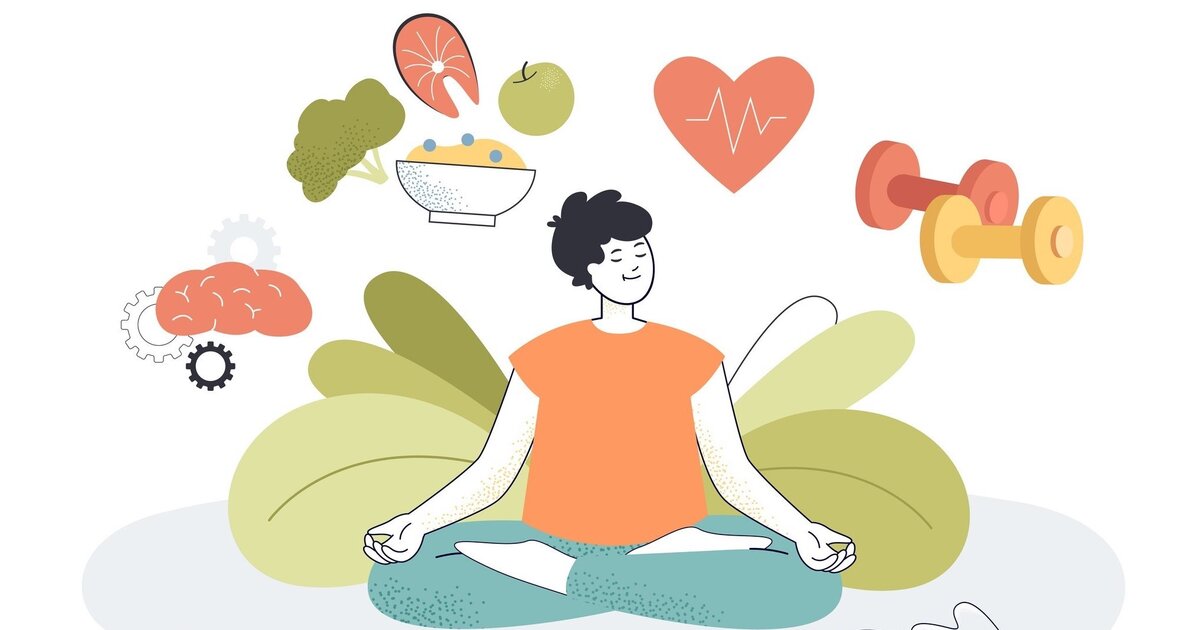Nothing rings truer than the adage “you are what you eat” when it comes to understanding nutrition—especially when you consider the brain. Our brain function is affected by the balance (or lack thereof) of nutrients in our diet. Mood, memory, and overall brain performance are each impacted by the quality and diversity of the foods we eat. Addressing the nutritional aspects of our mental health is known as nutritional psychiatry. The mind-body connection is a real thing; what you put in your body directly impacts your brain.
How nutrition impacts the brain has long been studied by nutritionists and neurologists alike, and more people are beginning to realize the role of nutrition in mental health. Some find that it helps to think of the food you eat like fuel for your brain, not just your body, and the quality of that fuel makes an absolute difference. So, how does nutrition impact the brain? Obviously, the food we eat travels through our digestive system and powers our body, but food affects our brain function in multiple ways as well.
The Relationship Between Stomach and Mind
When it comes to how the nervous system affects mental health, most people’s thoughts go straight to the brain or spinal cord. These two components make up the central nervous system (CNS) which serves as the body’s processing center. When considering the peripheral nervous system, or PNS, it’s easy to focus on the nerves charged with sending sensory signals to the brain or controlling movement, such as those in the eyes, mouth, or limbs.
However, there are more than 100 million nerve cells in the human gastrointestinal tract or gut, and many nutritional psychiatrists think of it as a small brain itself. While our center of consciousness is located primarily in our brain, everything that happens in the stomach and other digestive organs is a critical component of our mental health. Nervous receptors in the stomach connect to the brain itself, forming a unique neural network that allows communication between the stomach and the brain within seconds.
Hormone Production in the Stomach

Serotonin is one of the most important neurotransmitters in the human body. It regulates sleep, appetite, mood, and pain management. As it turns out, about 95% of the serotonin in your body is produced in your gastrointestinal tract—another way the food you eat and the health of your gut are linked to cognition and mental health. In fact, the production of serotonin in the stomach can highlight the importance of diet in depression.
It’s important to understand the factors that can make or break serotonin production.
Your Microbiome
Serotonin production in the stomach is affected by the bacteria that make up the microbiome in your gut. The bacteria which make up the microbiome are essential to your bodily functions directly connected to your mental health. A lack of “good” bacteria can inhibit regular, healthy serotonin production. As such, the quality of your microbiome could be contributing to poor nutrition and cognitive function.
Researchers have known for a long time that your gut flora (the bacteria that line your stomach and your intestines) provide a buffer zone that keeps toxins and potentially harmful bacteria from entering your bloodstream. They also reduce the inflammation in your body that can inhibit neural processing, the production of serotonin, and the ability for your body to absorb nutrients from the foods you eat. So, how can you keep your microbiome healthy? It all starts with the foods you eat.
Nutrition and Acidity in Your Microbiome
The environment of the stomach is acidic, or low in pH. The corrosive nature of human stomach acid assists in the breakdown of foods and allows for greater availability of nutrients for uptake into the bloodstream. It’s a bit ironic, then, that to help keep our stomach at a healthy pH level, it is essential to consider the pH of the foods we eat—especially those that are acidic and can negatively affect the gut microbiome.
Unfortunately, many of the most integral foods in the Western diet are highly acidic. For example, sugars, artificial sweeteners, coffee, tomatoes, and dairy products are all either acidic or serve as acid-forming foods once they get to the stomach. Avoiding overconsumption of acidic foods allows the microbiome to flourish, fosters a higher production of serotonin, and assists in efficient signal transduction in neural processing. Addressing your nutrition from this point of view can have positive effects on your mental health, as there will be less dissonance in the nerve pathways from the stomach to the brain and a positive environment for serotonin production.
Foods For a Better Brain

In fact, when it comes to regional diets, the modern western diet is near the bottom of the list for supporting brain function, reducing depression, and improving mood. At the other end of the spectrum, the plant-heavy Mediterranean diet focuses on healthy oils, fatty fish, olives, nuts, and other foods which have been linked to positive brain function and even a reduced risk of dementia and Alzheimer’s disease. To support a healthy microbiome, a diet must balance not only fruits and vegetables, but unprocessed grains, seafood, probiotic cultures, and prebiotic primers.
With that in mind, we have created a list of foods that may help support improved mood and brain function and can help you develop a focus on eating well for mental health.
Leafy Greens
“Eat your greens” is something we’ve all heard before. Beyond the traditional lettuce, however, why not try kale, spinach, broccoli, and other leafy foods? These are stacked with nutrients that support brain function, including vitamin K and beta carotene. Eating greens may also help to slow the cognitive decline that comes with age. If you choose to eat salads, find a way to do so without drenching them in sugary, fatty, or dairy-based dressings.
Fatty Fish
Certain fish are full of omega-3 fatty acids that, when processed by the body, sharpen memory, improve mood, and protect your brain against decline. Choose fatty fish like salmon, trout, and sardines to maximize this benefit. Try to find access to fatty fish that have not been treated with preservatives or growth hormones. Mass aqua-culture is unfortunately on the decline, but most people can find sources of relatively fresh fish even if they live in a land-locked region.
High Quality Oils
Processed vegetable and canola oils are abundant in western culture, and they are more available and less expensive than most alternatives. Unfortunately, using cheaper, highly processed oils can be detrimental to the body due to the free radicals that are created during the oxidation process. However, higher-quality oils such as avocado, sunflower, and olive oils can improve digestive health, and aid in overall executive function. They also make your food taste delicious.
Nuts
Nuts like walnuts, almonds, and pistachios are high in alpha-linolenic acid, an essential omega-3 fatty acid associated with improving memory. Snack nuts are also a healthy alternative to sweets since they are high in protein and filling. Nuts like chestnuts and almonds can also help promote a healthy microbiome as they are inherently alkaline forming.
Dark Chocolate
Yes, you can still eat chocolate! As it turns out, dark chocolate, cacao, and cocoa powder are powerful tools for improving our mood with little detriment to our health. Dark chocolate is rich in flavonoids, caffeine, and numerous antioxidants which have positive impacts on our hormone function and can reduce inflammation. Even more importantly, dark chocolate can give a sharp boost to our mood via the release of dopamine.
Keep your distance from processed milk and white chocolates, as well as chocolate with added sugars. Avoid eating more than a few pieces of dark chocolate at a time to avoid overwhelming your system with dopamine or causing a headache.
Berries
The natural pigments which give berries their bright colors contain flavonoids. Recent studies show that this group of phytonutrients, also termed “plant nutrients” can help fight off free radicals and reduce oxidative stress on your body. Berries also have been shown to improve memory.
What Does Nutritional Psychiatry Mean for You?

Gut health, nutrition, our neural networks, our microbiome, and our brain health are all interconnected—any approach to mental wellness must consider each of these factors. Once you are consuming foods that promote your mental health, instead of detracting from it, you can examine the sources of issues like substance use disorder, depression, and anxiety.
As they say, a healthy body is a healthy mind.
Editor’s Note: This article was originally published on Jan 14, 2019 and has been updated July 29, 2021.
